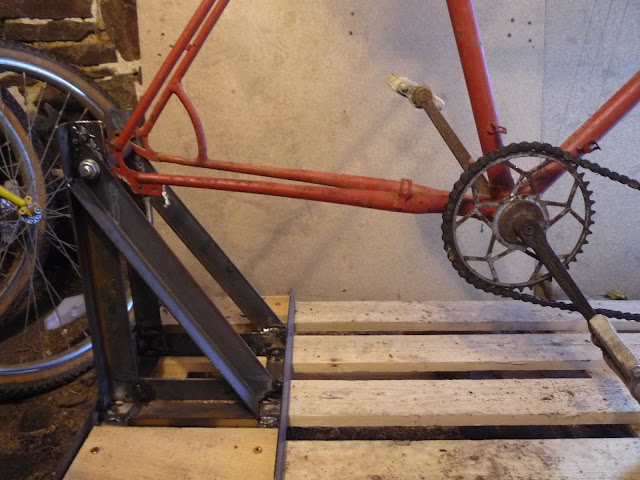Info, news & debate
People & community

25 dirt-cheap ways to garden organically and save money
Far from being an expensive or exclusive hobby, organic gardening is a brilliant way to buffer the cost-of-living crisis, allowing you to grow fresh, cheap and abundant food close to home, while at the same time nurturing nature.

Why cycling and walking are great for your mental health
Keeping active has huge benefits for physical helath – and walking and cycling are the perfect low impact exercise.

Is the corporate digital takeover of big cities ‘progress’?
In Brett Scott’s blog post, The War on Informality, he talks about his impressions of London after some time away, how it’s becoming more and more difficult to escape surveillance capitalism, and how it’s seeping into every area of Londoners’ lives.

Explaining the commons economy
The word ‘commons’ can mean different things to different people. We’ve been working with specialists to help build the commons economy, so we’d like to concisely describe what we mean, and how you can join us.

How strawbale construction can help reduce your carbon footprint
How can strawbale construction support a low carbon lifestyle?

Eco-friendly surface cleaner
A simple recipe for home made surface cleaner using natural ingredients.

Helping commons groups form and grow in Stroud and other towns (and countries)
Commons ideas have gone down well in Stroud and we have thriving groups in various sectors. We’ve been approached by formative groups in several towns in the UK and in other countries.

Restanza and the cultural commons
We’d like to see the commons economy grow to allow people (especially young people) to stay in their communities, rather than having to move to big cities to work in the corporate sector and pay extortionate rents. Here, Paul Jennings (who we’re liaising with about the commons in Llandeilo) talks about the concept of ‘Restanza’ …

Free online: 2024 revised and expanded edition of ‘The End of Money’
I read the first edition of this book around 12 years ago. It changed my life and put me on the path to where I am now – trying to build the commons economy. New 2024 edition, free online.

The first weeks of self-build at Church Grove, south London
Read about the progress with a self-build project from RUSS in Ladywell. Shaped by future residents from the start.

‘Bear ye one another’s burdens’: friendly societies for social welfare
Every neighbourhood had a friendly society. At their height, just before WW1 9 million people were members of friendly societies in the UK!

How to build an energy commons
This is a draft outline of a design for an energy commons in any town – an energy sector owned by communities, providing affordable, locally-generated, renewable energy.

Decentralising power: the why, what, how and who of growing the commons economy
Why we need to replace capitalism with a commons economy; who will do it and how.

Beyond Conservation: The Farmland Commons
The Farmers Land Trust is diversifying participation in our food system and helping to create stronger communities that can not only survive the land, climate, and social injustices of the world, but can thrive while helping to heal them. Learn more about the work of The Farmers Land Trust and the Farmland Commons.

‘Climbing commons’: community-owned climbing centres
We’re following the exploits of Stroud Commons, in trying to build a commons economy for the town, and helping groups to launch in other towns. As well as a core group, there are now groups forming for various sectors of the economy, including housing, energy, land/food/water, community spaces – and now, climbing!

New commons group and public event: Llandeilo, Carmarthenshire
Llandeilo commons: invitation to join a formative group and public event in West Wales.

How to Convert your Washing Machine to Pedal Power 1 – The Basic Model (Front-loader)
Convert your washing machine to pedal power!

How to bring the water industry into community ownership: Julian Jones of Water21, Part 2
part 2 of an interview (see video below for more details – well worth it!) with Julian Jones, a water engineer and distinguished fellow of the Schumacher Institute, who has worked and provided consultancy for water companies, NGOs, the Environment Agency, universities and governments.

Bridport Cohousing launches a range of natural build courses
Bridport Cohousing launches a range of natural build courses.

Taking the water industry off the water companies: Julian Jones of Water21, Part 1
Part 1 of an interview with Julian Jones, a water engineer and distinguished fellow of the Schumacher Institute, about building a water commons for Stroud.
